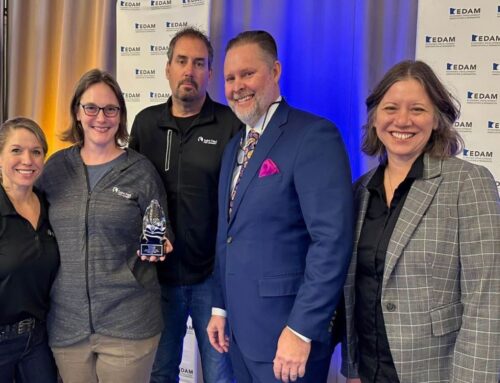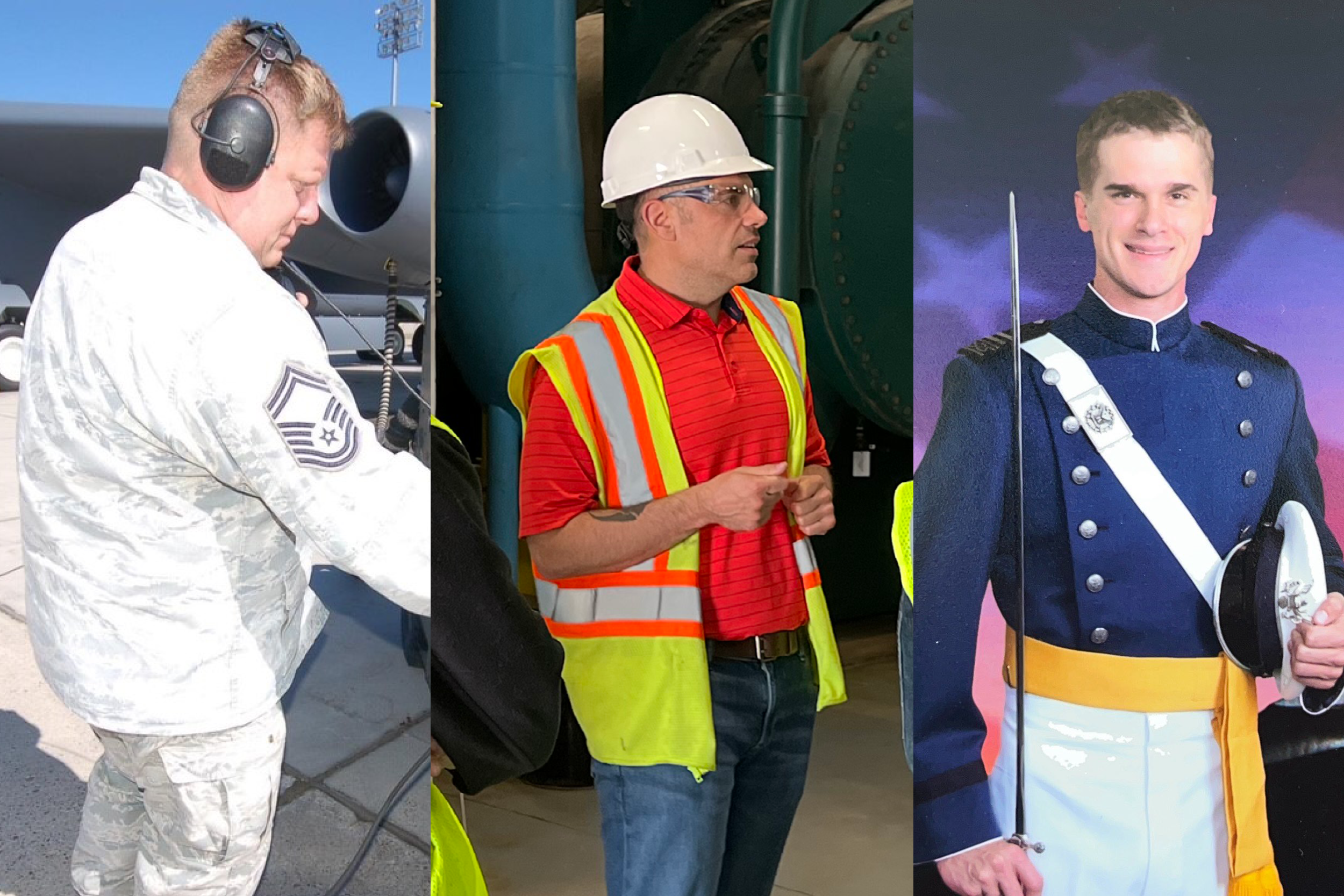
Celebrating Ever-Green’s Veterans
November 11, 2024 by Ever-Green Energy
This Veterans Day, we wish to thank all veterans for their dedication and service to our nation. At Ever-Green, we are fortunate to have a talented and dedicated workforce, with 25% of Ever-Green employees being veterans.
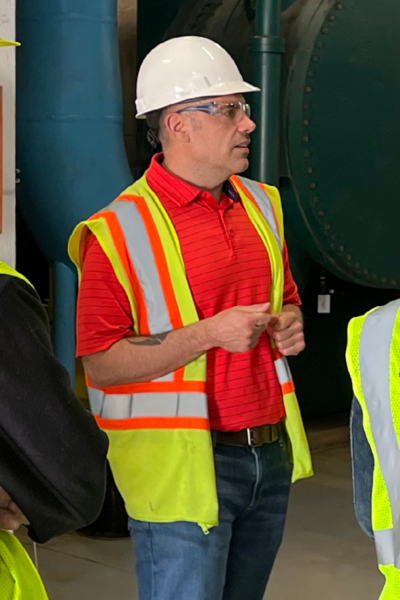
Chris Peterson, a US Navy veteran
Seven Ever-Green employees across multiple sites share what their time in the service means to them, how their skills in the service translate to their civilian career, and their advice for fellow vets re-entering the workforce.
Shared Understanding
Working alongside other veterans at Ever-Green provides a shared understanding. “While there are millions of veterans, it still seems to be a relatively small community, and when sharing experiences and stories with fellow veterans, it never ceases to amaze me the commonality we find,” reflects Chris Peterson, a Navy veteran and Ever-Green’s Director of Regional Operations. “Whether it be having mutual acquaintances, serving in similar locations, or experiences that we went through, that commonality is something that can help create an instant rapport with someone that may take much longer to develop with another person.”
Ever-Green President and CEO Luke Gaalswyk notes similarities between the values system of the branches of military and the core values at Ever-Green. As an Air Force veteran and drill-status member of the Minnesota National Air Guard, he says, “Integrity is foundational to the work that the Department of Defense does and the structures that it has established to train, develop, and deploy military service members.” Among veterans in the workplace, he has seen this foundation lead to “a sense of duty and a common understanding of teamwork and what it means to pull your weight.”
A Sharp and Relevant Skillset
Several employees shared that the skills they honed during their service translate well to their career at Ever-Green. While there is overlap between the mechanical equipment used in the service and the equipment used in plant operations, many cited interpersonal and leadership skills as equally applicable and important.
Tim Heineman, General Manager of Operations at CoolCo and Oberlin, served as a Machinist’s Mate Second Class. “I use the mechanical, electrical, and people skills I learned while serving in the US Navy daily in every area of my life,” he shares.
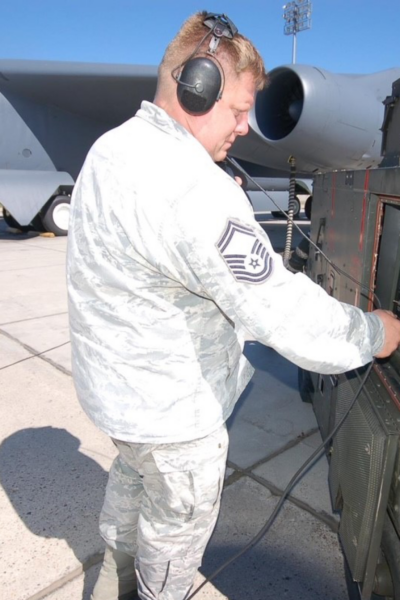
Tracy Brookens served for 27 years in the US Air Force
Tracy Brookens, a Maintenance Supervisor of Operations at Milwaukee Regional Medical Center, credits his 27 years in the Air Force for both his maintenance and leadership skills. “As I rose up through the ranks, I supervised more and more people, culminating in being the Maintenance Superintendent for 500+ personnel. It was an amazing experience, as the military populace is made up from people having different backgrounds, personalities, goals, and dreams, all while having different motivations.”
Dustin Paulsen, Senior Project and Account Manager at Duluth Energy Systems, learned a key customer care tactic from his time in the Army. His time in the 240th Quartermaster Battalion-82nd Airborne Corps and the 1st Armored Division, 3rd Armored Brigade, HQ 2/70th, taught him a valuable lesson he now uses at Ever-Green: “Military experience around the globe has taught me that you cannot communicate effectively if you have not identified your audience first. How I relay and communicate information to a customer is done on a customer-by-customer base. Adjusting to your audience, in my case, the customer, is a must for effective results.”
Terry Wesley, an Office and Administrative Assistant based in Saint Paul, was a member of the Minnesota Air National Guard for nearly 5 years and was in active reserves for a year and a half. She also worked in Federal employee service while she served. “Being in the service helps you recognize the importance of accomplishing your duties to the best of your abilities, because people—your co-workers, vendors, customers— rely on you just as your country relied on your ability to do your job correctly to protect them,” she says. “It helped me to multi-task better because you may be required to do other duties in a timely manner to help you meet the deadlines required to keep your company, squadron, etc. prepared to meet what may come.”
Patriotism, Pride, and Tradition
Each veteran has a unique reason for why they chose to serve.
Jeremy Seckinger, a supervisor of plant operations in Sunnyvale, served in the Navy as a Gas Turbine Electrician, working on various gas turbine engines and associated electrical equipment. His decision to enlist was deeply personal: “My father and stepfather were both in the Army, so I grew up in a military household, having lived overseas and at many bases here in the US. It gave me a real sense of pride and patriotism, plus it made me proud to follow in my father’s footsteps.”
Luke also had the value of service ingrained in him from a young age. “I remember as a boy my dad talking to me about how his dad had raised him to think about what it means to serve. My grandpa challenged my dad that when he left the house and went out into the community, he needed to serve in some capacity, whether that be serving in the military, in law enforcement, on the school board, or something else. Service is an integral part of our society. Reflecting back on my career in the US Air Force, I am proud to have had that opportunity to serve alongside some really incredible men and women and learn from them.”
Tracy is grateful for the opportunities his service afforded him, “The Air Force offered security, training, advanced education, world travel, and it was an amazing experience!”
Tim echoes a similar sentiment, reflecting, “It was a great way to transition from high school to adult life while still having a safety net. It made that period in my life less stressful.”
Advice for Employees, Employers
Everyone echoed that the transition from the service back to civilian life can have its ups and downs. To anyone challenged by starting their civilian career, Dustin’s advice is simple. “After 6 years active, I found civilian life/work difficult to adjust to. Just take a deep breath, listen intently and to all around you, make educated decisions while including your peers as well. Others will find that having discipline already instilled in you will be a huge bonus. Do not let it go to waste!”
Chris suggests using your community as a resource, saying, “The circumstances for everyone transitioning out of the military are different for each person. Do not be afraid to reach out to your fellow veterans and ask them to share advice and experiences.”
For those of us who did not serve, Jeremy Seckinger has this reminder: “Veterans want to be successful and they can be if you just ask them, how can I help you?”
To her fellow veterans, Terry offers reassurance, “The skills you learned during your time of service and those values that caused you to join the military and to protect your fellow citizens, still hold worth in the workforce. There are companies out there that will also value the skills your learned and will appreciate the time you served.”
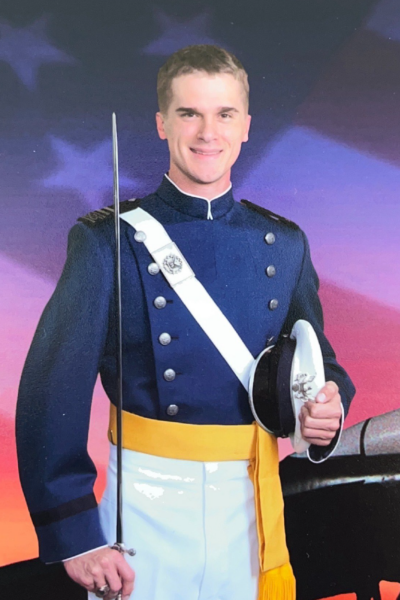
Luke Gaalswyk is a US Air Force veteran and drill-status member of the Minnesota National Air Guard
Veteran Employment Award
For the sixth consecutive year, Ever-Green has received the HIRE Vets Gold Medallion Award from the US Department of Labor. This award is the only federal-level veterans employment award recognizing a company’s or organization’s commitment to veteran hiring, retention, and development.
Luke is particularly proud of this honor. In his own transition into his civilian career in the energy sector, he credits his civilian hiring manager and supervisor for providing an opportunity and the training to work in the energy sector. This is something he now pays forward: “It is worth taking a chance on veterans. Sometimes hiring managers may not be able to completely match skill for skill on a position description, however, the foundation and the other skills veterans are bringing, along with their ability to learn, very often makes them successful in their role. I am proud that we have a track record of finding ways to help veterans thrive in this organization.”

